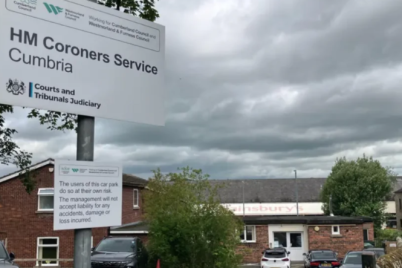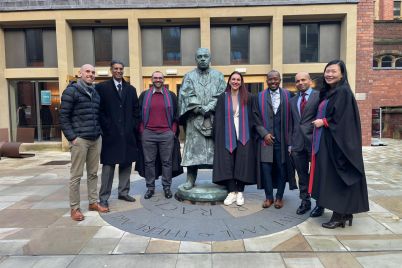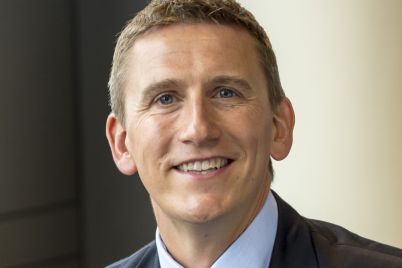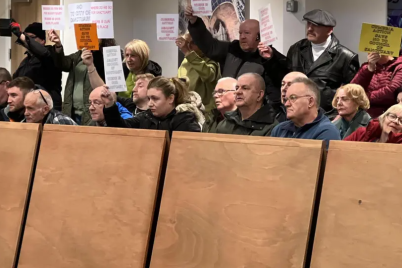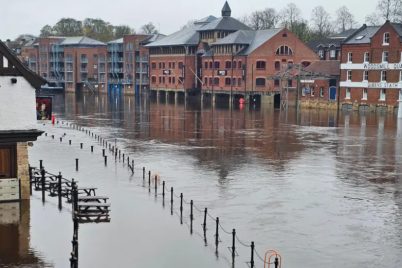An elected police chief has warned government plans to allow pubs and bars to stay open for longer could worsen alcohol-related violence and strain public services.
Joy Allen, Durham and Darlington’s Police and Crime Commissioner (PCC), said the proposals risked increasing “serious violence” and health problems, leaving taxpayers to bear the cost.
The government has launched a fast-track review of what it calls “outdated” licensing rules in England and Wales. It said the changes would make it easier for venues to serve food outside and host live music by altering their licensing conditions “without unnecessary red tape”.
Prime Minister Sir Keir Starmer said the review was part of efforts to “cut red tape” and “boost footfall” in local economies, arguing that “pubs and bars are the beating heart of our communities”.
But Allen said public safety should come before “consumer demand and profits”.
“Longer drinking hours would make harmful drinking even more accessible and would undoubtedly increase the risk of serious violence, intoxication, sexual harassment and gender-based violence,” she said.
“They will also place extra pressure on policing resources and budgets at a time when they are already severely overstretched.”
According to the Local Democracy Reporting Service, alcohol-related crime and disorder costs an estimated £812 million in north-east England each year. The region records around 700,000 alcohol-related violent incidents annually.
Allen said those costs were already straining local policing and health services, and warned that any relaxation in licensing would worsen the situation.
“Without a late-night levy in place, who would be picking up the tab for the increased policing costs for the extended hours and the likely fallout on crime levels – the taxpayer?” she asked.
“I implore the government to take the alcohol crisis seriously and to take heed of the growing evidence of its impact on society, without industry influence.”
Tackling alcohol-related crime forms part of Allen’s new Police, Crime and Justice Plan for 2026, which prioritises community safety and prevention strategies.
The government said the proposed reforms aim to support the hospitality industry by reducing bureaucracy. A spokesperson said: “These changes are about making it easier for pubs and restaurants to change their licensing conditions without unnecessary red tape.”
Over the next four weeks, the government will take evidence from the hospitality sector, local authorities, and the public before deciding whether to proceed.
Under the current system, pubs in England and Wales are granted specific operating hours by local authorities. There are no universal fixed opening times.
The review follows recommendations from a government licensing taskforce. These include removing the need to advertise licensing changes in local newspapers, increasing the number of temporary event notices, simplifying outdoor trading rules, and cutting business rates for pubs.
Nick Mackenzie, co-chair of the taskforce and chief executive of Greene King, said reforming the licensing system was “vital” for helping struggling venues.
“Pubs are faced with continued rising costs, placing them under enormous pressures,” he said. “The government must continue to back the sector, including critical reforms on business rates which would unlock opportunities for pubs to invest and help drive economic growth.”
Trade body UK Hospitality also welcomed the review. Its chief executive, Kate Nicholls, said: “Under the current regime, a single complaint from a single resident is often enough to stop a business from being able to trade. This is not about 24-hour licensing – it’s about freedom, flexibility, and reducing costs.”
However, alcohol charities have warned the reforms could have damaging social effects. Richard Piper, chief executive of Alcohol Change UK, described the plans as a “charter for chaos” unless supported by public health and local authority oversight.
He said later alcohol sales would “inevitably mean more victims of crime, including domestic violence, more antisocial behaviour, and more strain on police, ambulance and A&E staff”.
Drinking trends in the UK show that around four in five adults consume alcohol, with men more likely to exceed low-risk weekly guidelines than women. Alcohol Change UK reports that the average adult drinks the equivalent of 21 units a week, or 10.7 litres of pure alcohol annually.
While heavy episodic drinking among young men has declined since the late 1990s, binge drinking among women has increased. Since the COVID-19 pandemic, drinking habits among lower-income groups have remained higher than pre-pandemic levels, despite reductions among more affluent populations.
Alcohol-related health harms, including high blood pressure, anxiety, and cancer, remain widespread.
Allen’s comments reflect growing concern among police and health leaders that easing alcohol regulations could reverse progress on reducing harm.
“People’s lives, health and safety must come before profit,” she said. “We already know the human and financial cost of alcohol harm, and it’s our duty to prevent it getting worse.”
The government is expected to publish its findings from the consultation later this year.






